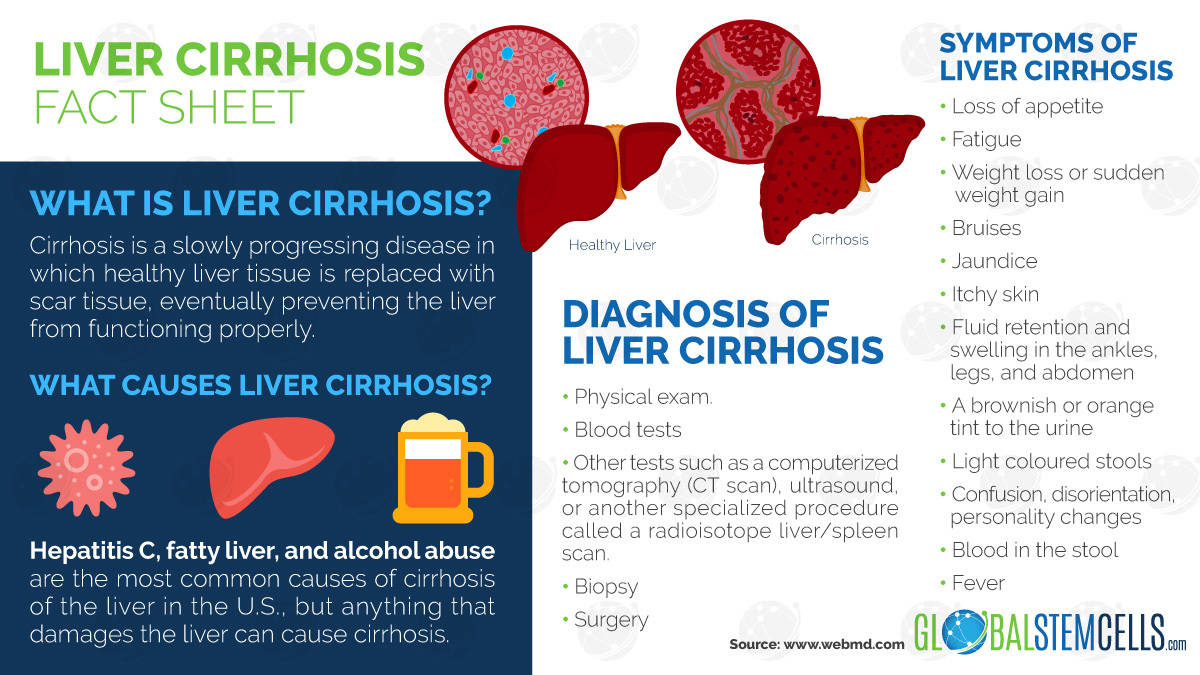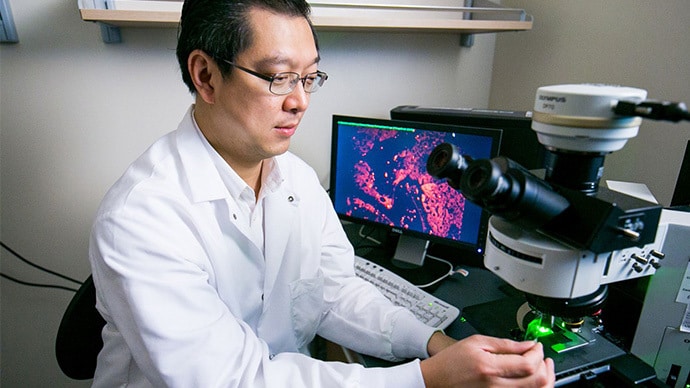In Singapore, using Stem Cell treatment in a clinical trial will be tested in order to cure Liver Cirrhosis also known as hardening of the liver, which costs S$2.6 million and includes 46 patients.
The study, which ran for 4 years, was recently launched and started in the midst of an increasing list in the country for a Liver Transplant—which is considered to be presently the only answer for patients living with end-stage Liver Cirrhosis.
Liver failure is listed as one of Singapore’s top 20 causes of death. However, most patients are not fit for the transplant because of certain factors like surgical fitness and age.
Understanding Liver Cirrhosis

According to Dr. Dan Yock Young, a senior consultant at NUH’s (National University Hospital) division of gastroenterology and hepatology and chief investigator of the clinical trial, out of each 5 patients that physicians treat with end-stage Liver Disease, only 1 is suitable for a Liver Transplant. He stated that although the treatment is curative, it is still a complicated procedure, and most patients are not qualified for it. For those patients, mortality rates are increased—as high as 50% in a year, and that is perhaps worse than most of the terminal illnesses and Liver Transplant is limited.
Whereas comparable Stem Cell studies have already been performed in other Asian centres, still, there has been “no definitive evidence” for liver patients regarding the benefits of this treatment.
The study would recruit patients that are between 40 to 70 years old, with chronic Liver Disease (on the terminal stages) condition for more than 3 years. It is financed by the National Medical Research Council.
Throughout the clinical trial, patients would be separated into a control group and a therapeutic group.
As part of the supportive treatment for their Liver Cirrhosis, the patients would be injected for stimulating their bone marrow cells. Nevertheless, only patients within the study group would have the Stem Cells from the extracted bone marrow and directly placed into their liver in order to achieve a more targeted healing. The liver tissue would be observed after 3 months, and then an examination would be carried out to compare the pre-and post-transplant results a year later.
One advantage of Stem Cell Therapy is that since invasive surgery is not necessary, for the patient, this means the fatality risk is extremely lowered. Nonetheless, other risks like infections and severe bleeding may still occur, given the person’s weakened condition.
For Liver Cirrhosis conditions, NUH affirmed that Stem Cell Therapy doesn’t replace Liver Transplants, as the latter still remains to be the best available treatment.
Dr. Dan noted that this Stem Cell Therapy will serve as an alternative choice, as it is “very painful to turn patients away when we cannot offer them a Liver Transplant.” He added that hopefully this will be a stepping stone to trials for the Stem Cell candidates.
A vast array of disorders can now be positively treated with Stem Cell Therapy. Diseases which have responded positively include Spinal Cord Injury (SCI), Multiple Sclerosis (MS), Chronic Kidney Disease, Autism, Muscular Dystrophy and Liver Cirrhosis.
Verita Neuro combines the best in Supportive therapies, Conventional Medicine and Regenerative Medicine in order to provide the utmost care to patients. Stem Cell Treatments produce minimal or no side-effects at all. This makes Stem Cells a safe and effective way to treat the condition.
We welcome any inquiries that you might have. You can reach us for more information on how Stem Cell Therapy is changing many lives for the better.
H/T: Today Online




 English
English